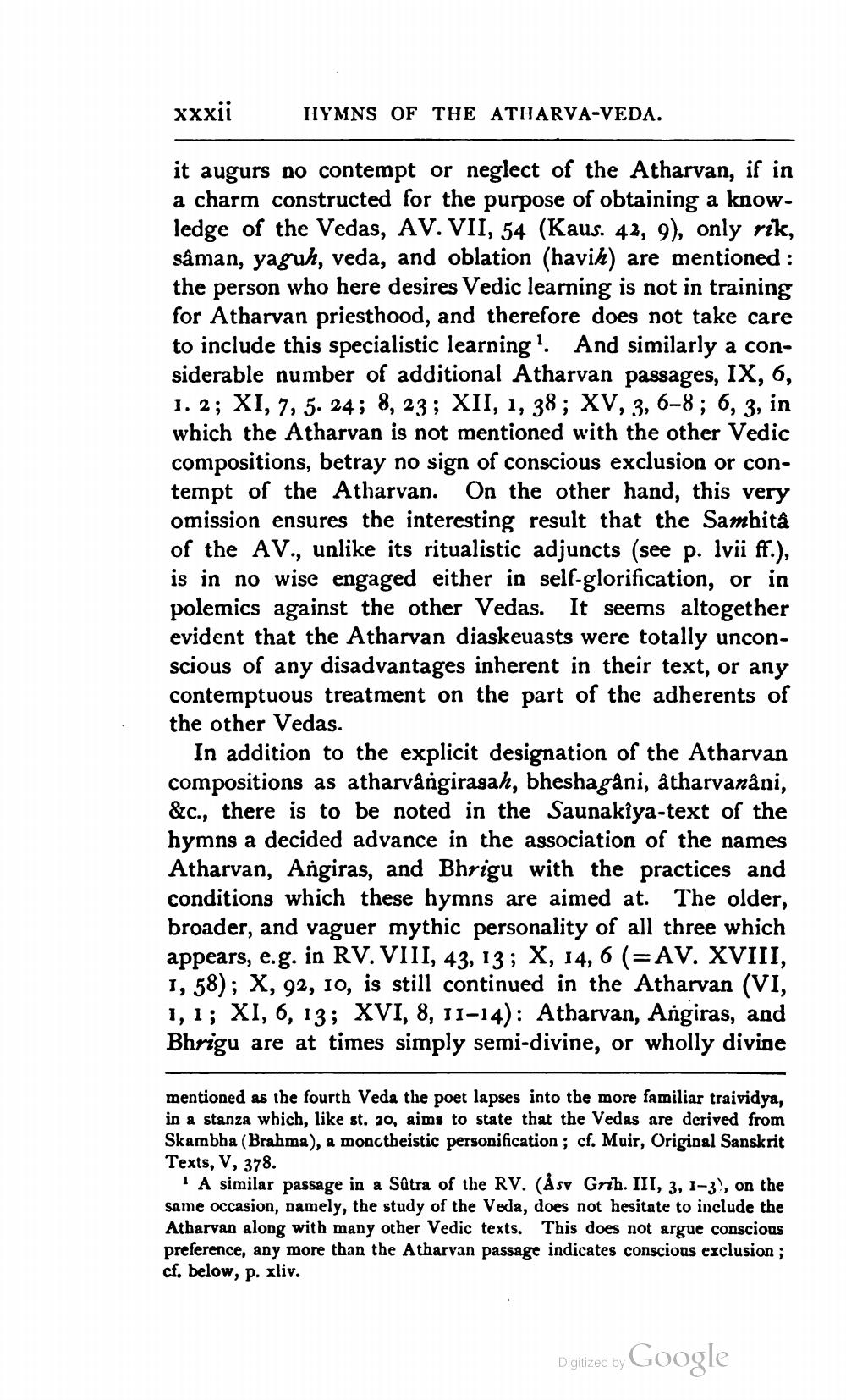________________
xxxii
IIYMNS OF THE ATHARVA-VEDA.
it augurs no contempt or neglect of the Atharvan, if in a charm constructed for the purpose of obtaining a knowledge of the Vedas, AV. VII, 54 (Kaus. 42, 9), only rik, saman, yaguh, veda, and oblation (havih) are mentioned : the person who here desires Vedic learning is not in training for Atharvan priesthood, and therefore does not take care to include this specialistic learning? And similarly a considerable number of additional Atharvan passages, IX, 6, 1. 2; XI, 7, 5. 24; 8, 23; XII, 1, 38; XV, 3, 6–8; 6, 3, in which the Atharvan is not mentioned with the other Vedic compositions, betray no sign of conscious exclusion or contempt of the Atharvan. On the other hand, this very omission ensures the interesting result that the Samhita of the AV., unlike its ritualistic adjuncts (see p. lvii ff.), is in no wise engaged either in self-glorification, or in polemics against the other Vedas. It seems altogether evident that the Atharvan diaskeuasts were totally unconscious of any disadvantages inherent in their text, or any contemptuous treatment on the part of the adherents of the other Vedas.
In addition to the explicit designation of the Atharvan compositions as atharvångirasah, bhesha gåni, åtharvanäni, &c., there is to be noted in the Saunakiya-text of the hymns a decided advance in the association of the names Atharvan, Angiras, and Bhrigu with the practices and conditions which these hymns are aimed at. The older, broader, and vaguer mythic personality of all three which appears, e.g. in RV. VIII, 43, 13; X, 14, 6 (=AV. XVIII, 1, 58); X, 92, 10, is still continued in the Atharvan (VI, 1,1; XI, 6, 13; XVI, 8, 11-14): Atharvan, Argiras, and Bhrigu are at times simply semi-divine, or wholly divine
mentioned as the fourth Veda the poet lapses into the more familiar traividya, in a stanza which, like st. 20, aims to state that the Vedas are derived from Skambha (Brahma), a monctheistic personification; cf. Muir, Original Sanskrit Texts, V, 378.
A similar passage in a Sátra of the RV. (Åsv Grih. III, 3, 1-3, on the same occasion, namely, the study of the Veda, does not hesitate to include the Atharvan along with many other Vedic texts. This does not argue conscious preference, any more than the Atharvan passage indicates conscious exclusion ; cf. below, p. xliv.
Digized by Google
Digitized by




